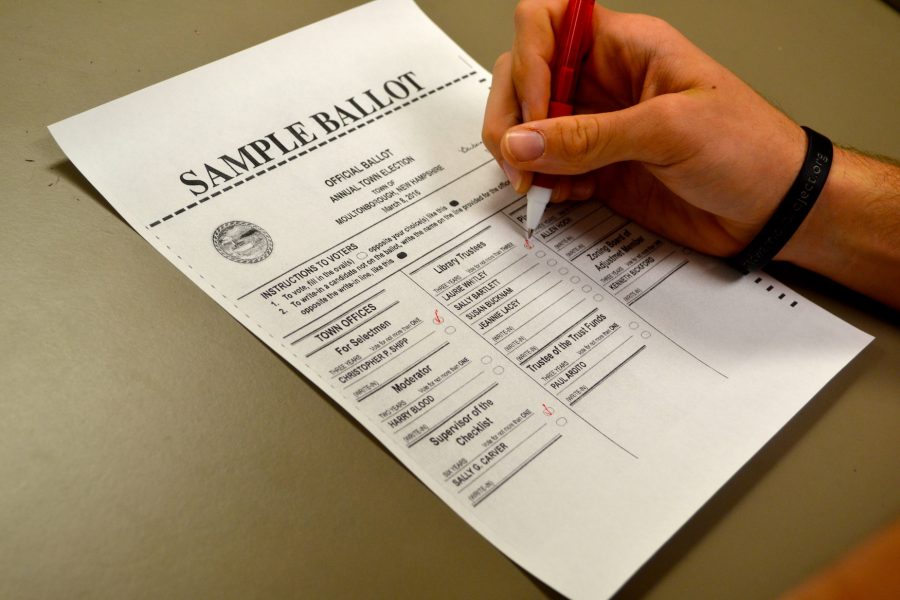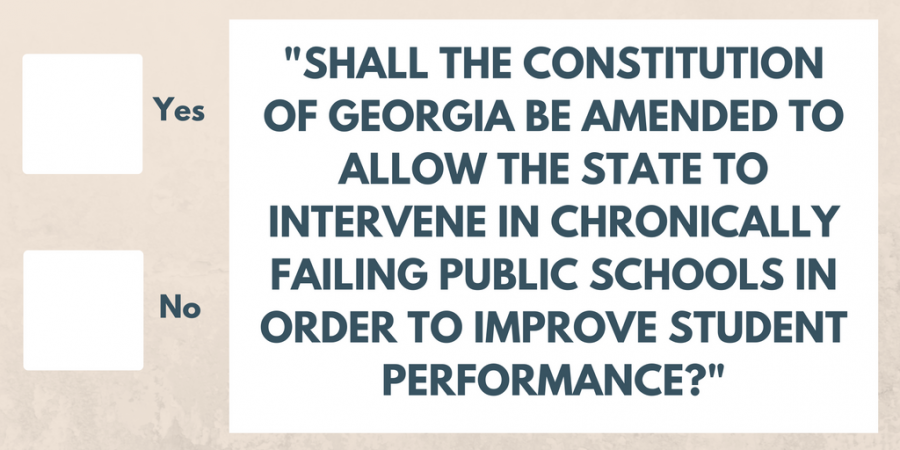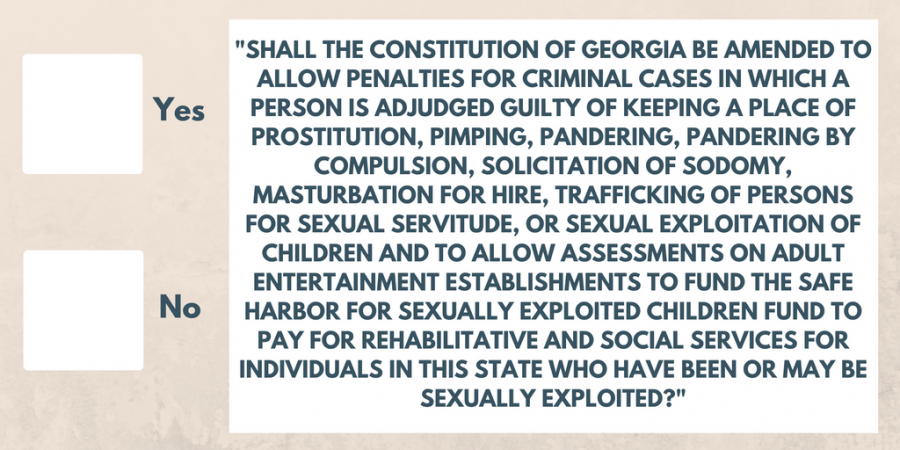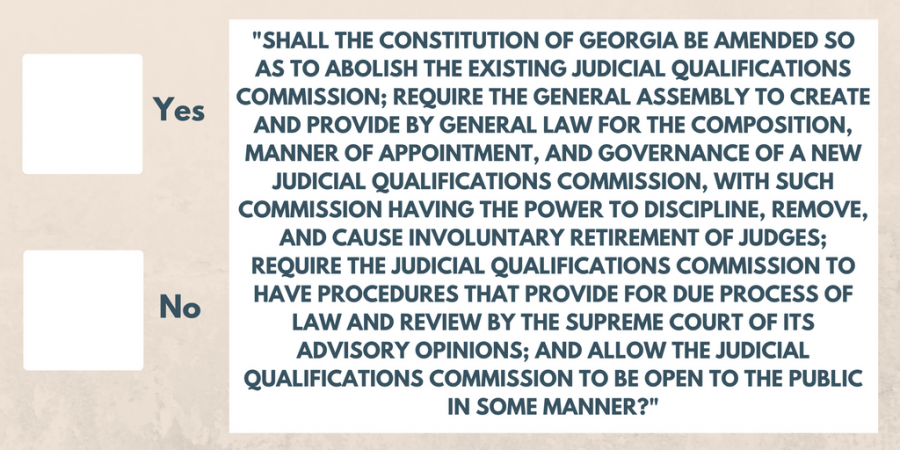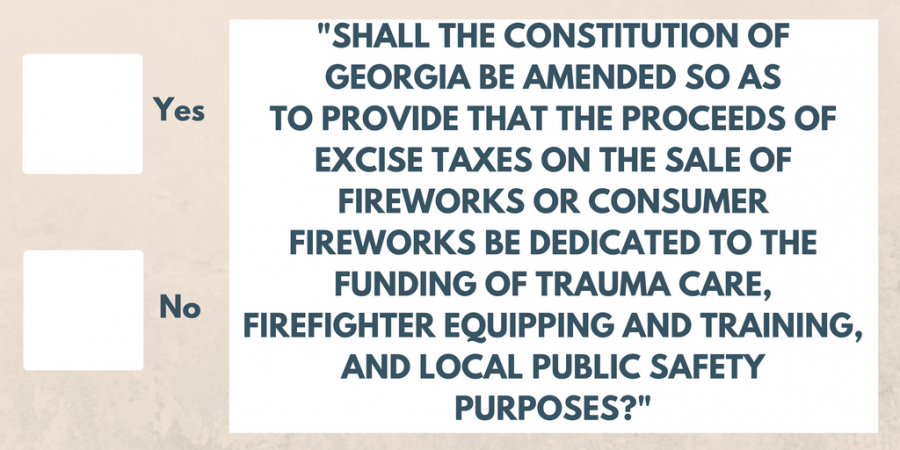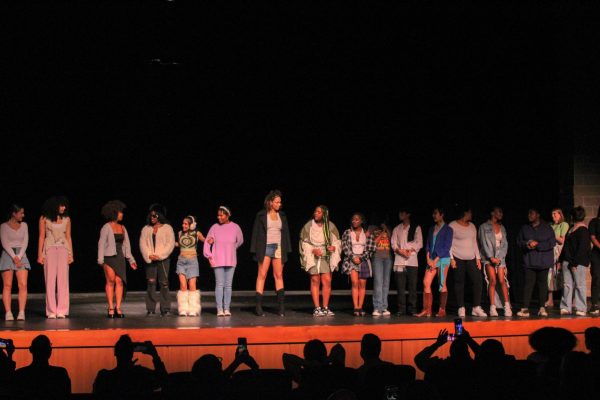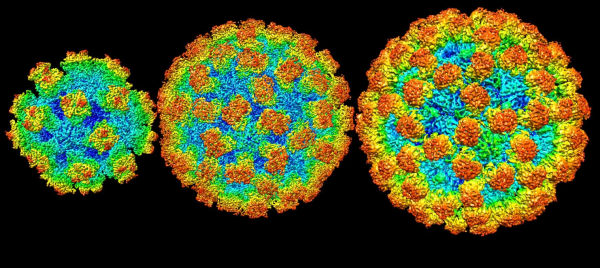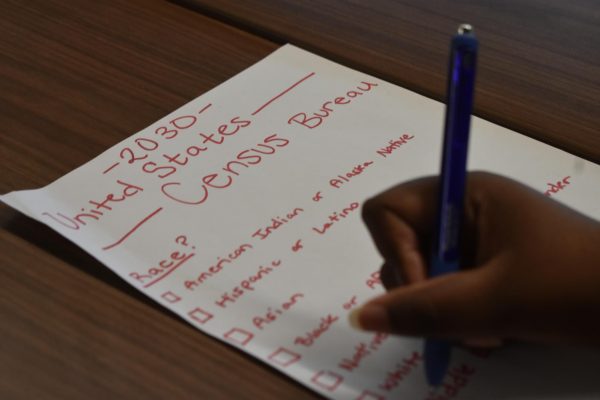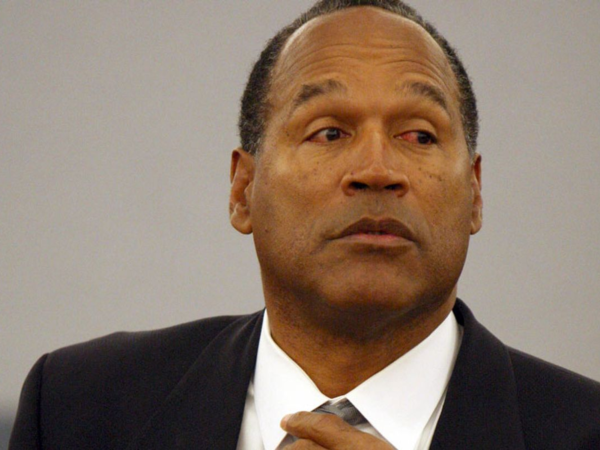A guide to the four proposed amendments to Georgia’s constitution
A voter fills out a sample ballot.
November 7, 2016
In addition to casting a vote for a presidential candidate, Georgia voters also have the opportunity to speak their mind on four possible amendments to the state’s constitution when flocking to the polls on November 8, 2016. The four amendments proposed by the Georgia Secretary of State (GSOS) include allowing the state to intervene in failing schools, generating new revenue for the Safe Harbor for Sexually Exploited Children Fund, abolishing the Judicial Qualifications Commission, and taxing the sale of fireworks to pay for trauma care.
The ballot allows citizens to cast up-or-down votes on each of the issues. The proposed amendments required a two-thirds majority in the Georgia General Assembly before being issued to the voters and need only a simple majority for citizen passage.
Amendment One
The first amendment proposed will let the General Assembly create an “Opportunity School District” to intervene in schools deemed unsatisfactory, allowing the state “to receive, control, and expend state, federal, and local funds appropriated for schools under the current or prior supervision, management, or operation of the Opportunity School District,” according to the GSOS.
Governor Nathan Deal supports the measure and believes it will increase state flexibility and accountability, but faces backlash from teachers across the state who claim that the program does not focus on helping failing schools; they fear the district will take funds away from succeeding schools and spend them inefficiently.
Amendment #1 on the GA ballot is simply a step to begin privatization. It is a plan that failed already in Other states. Vote NO on A#1.
— Bryan Edge (@BryanEdge58) November 4, 2016
Amendment Two
The second proposed amendment deals with creating a fund for sexual exploitation derived from $5000 annual assessments on adult entertainment companies and allowing additional penalties for those involved in prostitution. The Safe Harbor for Sexually Exploited Children Fund will seek to provide rehabilitation, housing, and other social welfare for victims of prostitution.
A bipartisan group comprised of Republican Attorney General Sam Olens, Sen. Renee Unterman, and previous mayor of Atlanta, Shirley Franklin, has pushed the measure through with the goal of aiding human trafficking victims. Critics feel the proposed amendment unfairly taxes strip clubs and other adult entertainment businesses.
“I feel that the government should not tax the adult entertainment business,” senior Ansley Hayman said. “Even though our country needs to do something for the Safe Harbor for Sexually Exploited Children Fund, it shouldn’t be by taxing something that people make their living off of. If the business is legal, then the government should not be able to impose more taxes on them than other businesses.”
Amendment Three
Amendment Three seeks to abolish the current Judicial Qualifications Commission and replace it with a new body for which the General Assembly will control “composition, manner of appointment, governance, powers and duties, procedures, and open meetings,” according to the GSOS. It will also allow for the commission to remove and discipline judges, and give the Supreme Court revision powers on its decisions.
The current Judicial Qualifications Commission began in 1972 to provide a forum for judicial misconduct in the state and employs two judges, three lawyers, and two citizens. The amendment found both support and distaste, from those who believe the “watchdog” commission wields too much power to those who believe replacing it would allow judges to easily sway the government.
Amendment Four
The last proposed amendment allows for taxes on fireworks to fund “trauma care, fire services, and public safety,” according to GSOS. The 5% tax, which already exists on all firework transactions, will provide funding for the trauma network, firefighting equipment and training, and public safety efforts by local governments.
While the amendment seems fairly straightforward, certain groups, including the Georgia chapter of the NAACP, say that the state should not place the tax burden on Georgians with low incomes.
“We believe that trauma care and our hospitals are important priorities, and they should be important enough to be funded through general revenue that is collected from the progressive income and property taxes of the state,” NAACP Chapter President Francys Johnson said.
For a run-down on the voting procedure in Georgia and more resources about the four proposed ballot measures, visit NC’s AP Comparative Government teacher Carolyn Galloway’s blog post.




